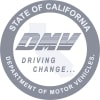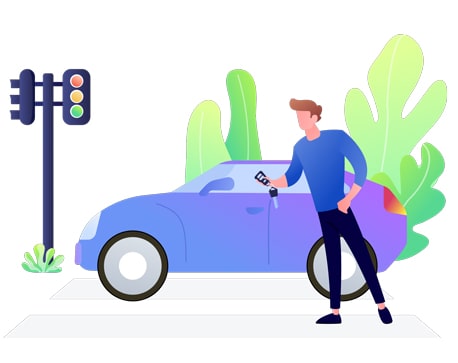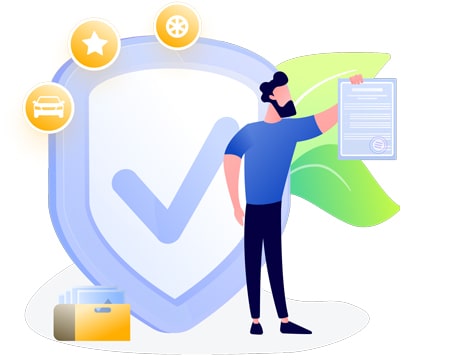Victoria Drivers Ed FAQs for Adults
Is drivers ed free?
No, drivers ed is not free. Our Texas adult drivers ed course is affordably priced at $34.95, offering an excellent value for a state-approved, comprehensive 6-hour program. This fee includes all course materials, and you can study at your own pace, logging in and out whenever needed. The course provides the essential knowledge and certification required for adults aged 18 to 24 to obtain a Texas driver’s license. For individuals aged 25 and older, the course is optional but serves as a great way to prepare for the licensing exams, giving you the confidence to pass on your first attempt&8203;.
Do you need a driver's ed certificate to get your permit?
Yes, if you are between 18 and 24 years old, completing a Texas adult drivers ed course and obtaining an ADE-1317 certificate is mandatory before applying for a Texas permit or driver’s license. This certificate shows that you have fulfilled the state’s education requirements, which include covering traffic laws, road safety, and other essential topics.
For individuals aged 25 or older, the course is not required, but it is highly recommended. By taking the course, you can bypass the written knowledge test at the DPS, making the process smoother and more convenient&8203;&8203;.
What do you learn in drivers ed?
Drivers ed teaches you the fundamentals of driving, Texas traffic laws, and best practices for road safety. Key topics include:
- Traffic Laws and Road Rules: Detailed knowledge of Texas traffic signs, signals, and legal requirements for driving.
- Defensive Driving Techniques: Tips to anticipate hazards, handle emergencies, and reduce the risk of accidents.
- Driver Responsibilities: Basics of car maintenance, insurance, and responsibilities toward other road users.
- Safe Driving Practices: Awareness of distractions, impaired driving, and strategies for safe vehicle operation.
- Exam Preparation: The course helps you prepare for the Texas permit test by focusing on knowledge and skills needed to pass.
Completing the course helps you become a responsible driver and increases your confidence on the road&8203;&8203;.
How many driving hours do you need?
Adults 18 years and older are not required to complete a specific number of driving hours in Texas. However, practicing with a licensed driver or instructor is crucial to gaining the skills needed to pass the Texas DPS driving test.
Professional Texas driving lessons can be a valuable investment, especially if you’re a first-time driver. These lessons provide one-on-one guidance and help you master critical maneuvers such as parallel parking, lane changes, and merging. Instructors also offer feedback tailored to your driving style, ensuring you’re well-prepared for the in-car test&8203;&8203;.
Who has to pass an approved driver education course in order to obtain a driver license?
Adults aged 18 to 24 are required to complete an approved Texas adult drivers ed course to apply for a Texas driver’s license. This 6-hour course meets state requirements and prepares you for the licensing process by including the written test as part of the program.
For individuals 25 years and older, the course is optional but can simplify the licensing process. By completing the course, you can skip the written test at the DPS, allowing you to focus solely on the road test&8203;&8203;.
Do you offer services outside Victoria?
Yes, our Texas adult drivers ed course is available statewide. While we proudly serve the Victoria community, our course is accessible to residents of other cities, such as McKinney, Euless, College Station, Pasadena, Socorro, Austin, Pharr, Friendswood, Coppell, Harlingen, and New Braunfels. Whether you're in Victoria or another city, our online course provides the flexibility to complete your Texas drivers education on your own schedule&8203;.
How much does it cost to get your license in Texas?
The cost to obtain a Texas driver’s license is $33. This fee is paid when you apply at the DPS office and covers the issuance of your license. Additional costs may include the fee for a Texas adult drivers ed course, professional driving lessons, or road test fees if you use a third-party testing service. Planning for these costs ensures a smooth licensing process&8203;&8203;.
How much do you need to pass the permit test?
To pass the Texas permit test, you need to achieve a score of 70%, which typically requires answering at least 21 out of 30 questions correctly. The test evaluates your knowledge of traffic laws, road signs, and safe driving practices. Using a Texas DPS practice test can help you prepare by familiarizing yourself with the format and types of questions&8203;&8203;.
Is there a written test to get your license?
Yes, there is a written test for individuals aged 25 and older who did not complete a drivers ed course. However, adults aged 18 to 24 who complete the Texas adult driver education course can skip the written test at the DPS since it is included in the program. This makes the course a convenient option for fulfilling state requirements&8203;&8203;.
Do I need a learners permit at 18?
While adults aged 18 and older do not receive a traditional learners permit, they can apply for a restricted license, often called a Texas learner permit for adults. This license allows you to practice driving under supervision with a licensed adult (aged 21 or older) in the passenger seat until you’re ready for your road test&8203;&8203;.
Can you do your permit test online?
Yes, the permit test can be completed online as part of a state-approved Texas adult drivers ed course. By enrolling in our course, you can take the test from the comfort of your home and skip the need to take it at the DPS. This convenient option streamlines the licensing process for adults&8203;&8203;.
Do you have to take the permit test again if it expires?
If your permit or restricted license expires, you may need to retake the written test at the DPS. However, if you completed a drivers ed course that included the test, the DPS may allow you to proceed without retaking it. Check with your local DPS office for specific guidelines to avoid unnecessary delays&8203;.












